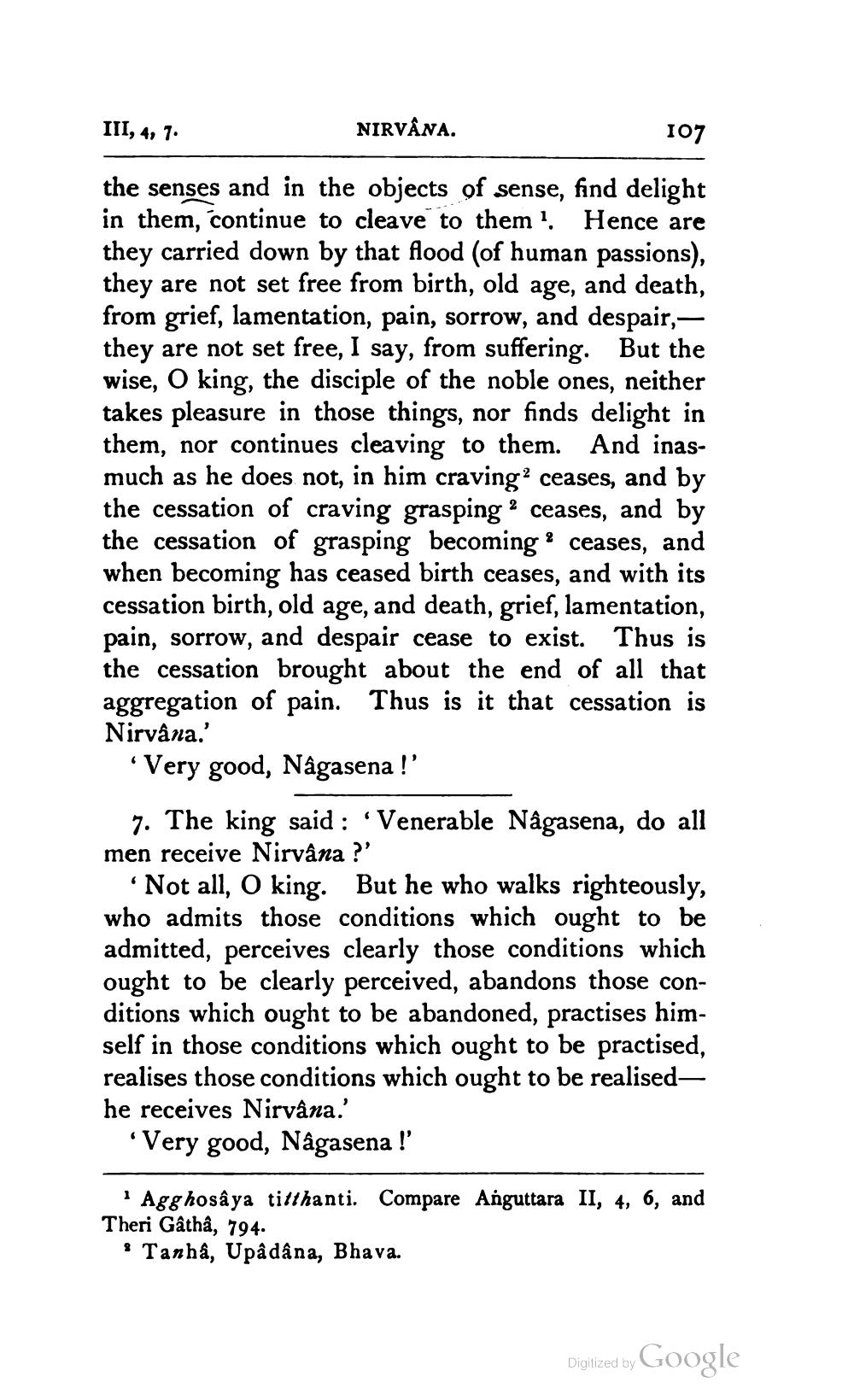________________
III, 4, 7.
NIRVÂNA.
107
the senses and in the objects of sense, find delight in them, continue to cleave to them. Hence are they carried down by that flood (of human passions), they are not set free from birth, old age, and death, from grief, lamentation, pain, sorrow, and despair,they are not set free, I say, from suffering. But the wise, O king, the disciple of the noble ones, neither takes pleasure in those things, nor finds delight in them, nor continues cleaving to them. And inasmuch as he does not, in him craving? ceases, and by the cessation of craving grasping ? ceases, and by the cessation of grasping becoming ? ceases, and when becoming has ceased birth ceases, and with its cessation birth, old age, and death, grief, lamentation, pain, sorrow, and despair cease to exist. Thus is the cessation brought about the end of all that aggregation of pain. Thus is it that cessation is Nirvana.'
* Very good, Nagasena !'
7. The king said : “Venerable Nâgasena, do all men receive Nirvana ?'
Not all, O king. But he who walks righteously, who admits those conditions which ought to be admitted, perceives clearly those conditions which ought to be clearly perceived, abandons those conditions which ought to be abandoned, practises himself in those conditions which ought to be practised, realises those conditions which ought to be realised - he receives Nirvana.'
Very good, Nâgasena !'
* Agghosâya titthanti. Compare Anguttara II, 4, 6, and Theri Gâthâ, 794. . Tanhâ, Upâdâna, Bhava.
Digitized by Google




